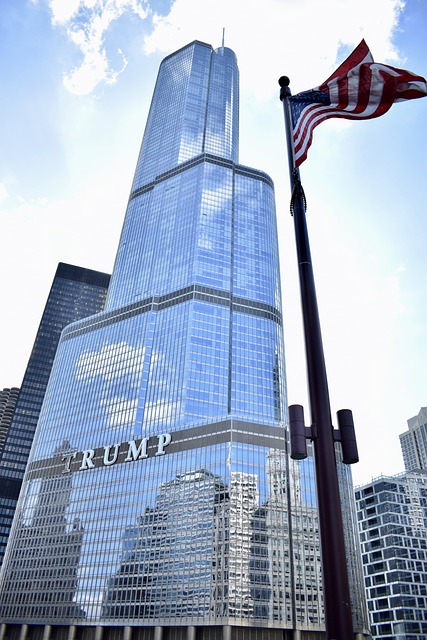
War can be a last resort, but official or public diplomacy should play a role before reaching that. America may not be interested in understanding China, but it should be keen on being understood by China. Here, the U.S. may have to face some issues.
Donald Bishop recently noticed the role of public diplomacy in U.S. history[1], [1]saying that “In his 1941 State of the Union Address, President Franklin Roosevelt proclaimed freedom of speech, freedom to Worship, Freedom from Fear, and Freedom from Want as “four essential human freedoms.” These values seem to be the backbone of the American way of talking to the world and possibly its most significant present adversary – China.
Yet Roosevelt’s appeal worked with Europeans, who dominated the world then because Europe was the most important continent, and European colonialism had shaped the global order. Roosevelt’s enemies were also Europeans—fascists and communists. The four values he championed carved out a special space that resonated, albeit to varying degrees, with people living under both fascism and communism. Fascism and communism were also determined to occupy the same European cultural space.
Would similar values resonate with the Chinese? One might say, “Yes, they do—they must.” After all, who doesn’t want to be free from poverty or fear (especially in oppressive systems)? Who wouldn’t like freedom of speech or freedom of worship?
However, with their distinct cultural mindset and limited exposure to modern Western (American) culture, Chinese people might not be immediately drawn to these values like their European counterparts. While these ideas are not entirely alien to them, they do not carry the same immediate appeal.
Religious Vein of Europe
Europe was born out of religious wars. The Germanic Frankish Empire, which dominated continental Europe for over a millennium, started, at least in the official histories, pushing back the Muslim invasion from Spain in the name of newly adopted Christianity. Charlemagne was famously crowned Holy Emperor by the Pope in 800.
Christianity remained divided in spirit and politics, with the Oriental Patriarchs claiming independent authority from Rome and the Constantinople emperor remaining the main strategic force of the Mediterranean until its fall in 1453. The fall weakened the Patriarch and strengthened the Pope and his protector and protégé —the Habsburg dynasty, which ruled the Holy German Empire and Europe.
The unprecedented unity of Christianity lasted little time. In 1517, Martin Luther published his 90 theses, and soon, with the support of some German princes chafing under the emperor’s rule, the Protestant Reformation sprang, giving rise to all the various Christian denominations, some of which tried to flee persecution and settle on the American continent.
Little history tells us that freedom of worship is central to European identity, which would have otherwise succumbed to religious movements in the past centuries. Freedom of speech and of fear (of living under an oppressive regime or intolerance of one’s beliefs) come from freedom of worship. Freedom of want is the modern promise of the age of perennial abundance.
But China is a different kettle of fish. Religious freedom (thus of speech and fear) was never an issue. As Ge Zhaoguang demonstrated[2][2], China’s rulers were more tolerant of religious beliefs than their European counterparts. There were no religious wars in China, as the emperor retained the ultimate power of mediation between different faiths, avoiding religious clashes. Conversely, in the Mediterranean world, we had dual powers, religious and political, legitimizing each other.
Even when the top leader, the Byzantine emperor or the Caliph, held the ultimate say, they could not ignore the bishops or the mullahs, as they derived legitimization from their consent. China’s emperors derived their legitimization directly from the favors of Heaven, of which they were the sons.
Therefore, the four freedoms cut little or no ice in China, except with people already willing to listen to the Western message.
This raises a critical question: How can Americans communicate with the Chinese people in a way that makes the U.S. message resonate? And how can Americans engage Chinese officials—who are more exposed to U.S. culture but also deeply attentive to their people and leaders—so that they truly “hear” U.S. concerns?
Perhaps, in a nutshell, the message must be framed in cold, dispassionate terms: The world operates according to certain rules, which are also Western rules. These rules have made China richer than at any point in its history, so they are clearly beneficial for the Chinese people and everyone else. However, China cannot expect to grow wealthy while leaving others in poverty. Its massive trade surplus, like the problematic and ill-managed trade surplus during the Ming (17th century) or Qing (19th century) times, is a time bomb waiting to explode. Such a path would lead to global collapse—and China would fall with it. China must embrace significant change, or everything will fall apart.
This message should be delivered through every channel without animosity but with care and firmness. It is an objective necessity, not just for the world but for China itself.
Moving the target
Chinese people and officials who are not dumb or irresponsible understand this. However, around 2004–2005, China shifted its trajectory, shelving political reforms first and then financial reforms, opting instead to maintain its existing system. The U.S. failures in Iraq and Afghanistan, the financial crisis, and the ensuing American self-critical literature convinced China that the U.S. was a declining power not worth emulating. Now, the cost of resuming political and financial reforms has become daunting.
China wasted 20 precious years under the misconception that America was in decline and misjudged the nature of its own challenges. The reality is that Americans have hit several setbacks in the past. Still, the model that made America rich, a liberal economy based on the rule of law, works better than any alternative, regardless of the country adopting it. Freedom of worship may not have been important in China. Still, the struggle to obtain freedom of worship helped the development of a free market that led to the capitalist revolution. That free market is vital for China, too.
For two centuries, pundits of various extractions tried to poke holes into the capitalist edifice, but capitalism always overcame its setbacks. Marx famously pointed out that capitalism, to survive, needs always to increase its rate of profits, and capitalists need to corner the market. He concluded that capitalism would drive against a wall because those two trends were unsustainable. Malthus similarly saw the limited available arable land as the physically impossible boundary of unsustainable population and, thus, capitalist growth.
Yet reality proved the theory wrong. Periodical technological advances rebooted the game of “profits’ rates” or “food production.” One could argue that the diminishing profit returns within a particular technology drive technological innovation. As for capitalists cornering the market, anti-trust laws overcame the hurdle, and in 2003, before the financial crisis, farsighted economists Raghuram Rajan and Luigi Zingales saw the present dangers ahead in their book Saving Capitalism from the Capitalists. In a nutshell, it seems capitalism needs capitalists but hates them, too, as they try to overplay their hand and close the open market.
In the past two decades, while China fared better economically and avoided squandering trillions on half-baked ventures like Iraq, it abandoned the true values of liberal politics and a liberal market. The U.S., despite its failures in Iraq, remained committed to its core liberal principles and has since rebounded with vigor. Praxis is a central Marxist tenet that the Chinese communist party embraces. The Party theory journal after the 1987 momentous Party Congress changed its name from Red Flag to Seeking Truth from Mao’s exhortation “Seek truth from facts” 实事求是. Then, the question for the party should be: What do facts tell us now?
That’s where we stand today. The Chinese might not openly admit this narrative, but perhaps it resonates with them. Acknowledging it could unleash a massive domestic blame game, challenging two decades of decisions. But the Chinese are practical, and it’s easy to recognize that capitalism is not a zero-sum game; it’s a real win-win, although it has significant political consequences.
finis
[1] https://www.academia.edu/126280207/Communicating_Values_Looking_Back_at_the_Four_Freedoms
[2] https://www.appiainstitute.org/articles/asia/debate-in-front-of-mongke-khan-the-first-face-to-face-discussion-of-doctrines-between-eastern-and-western-religions/









